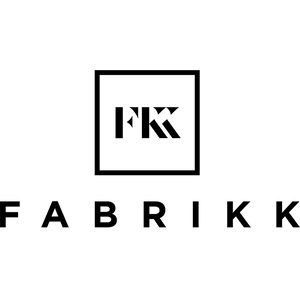One of the most fascinating aspects of product design is the application of new material science. Learning where exciting new textiles come from, how they’re processed, who makes them and their what their potential impact is, both for us and the environment, has always been of particular interest to me. Prior to launching Fabrikk, I’d also become interested in how we interact with materials and products on a day-to-day basis, and I used this curiosity and information as one of my inspirations in new product development.
New materials have the potential to dramatically improve the functionality and impact of Fabrikk products, and revolutionise our production techniques. My aim is to explore the potential of new materials and use them to create timeless, functional products with added benefits for the wearer.
Like windows with self-cleaning glass (I wish I had!) or materials that expand or contract with changes in moisture or temperature, the potential application for new materials is truly mind-blowing. When I discovered recent developments in fibre optic LED materials, l considered the possibility of replacing the traditional lining of a handbag with a material that lit up when the bag was opened; it seemed like a logical decision considering I’ve been struggling to find things in the dark for years!

LED fibre optic materials

FABRIKK VELA - LED Cork Handbag
My studies in product design at the university to a Masters level was definitely a major influence on starting the Fabrikk brand. Researching all the new materials, the industry, and its players were incredibly interesting definitely helped to steer the direction of the brand. Some of these influences can be seen below.

Sylvia Pichle - Zilla Tote Bag
A young Italian architect who designs handbags drawing on industrial materials typically reserved for insulation, interior decoration or even air filtering. Pichler creates curious, elegant bags under the moniker Zilla.

Doreen Westphal.
Doreen Westphal creates bags made from recycled rubber inner tubes and felt. Each design is unique, and the finished products have a tough, urban feel with an underlying sense of softness


Ilaria Venturini - Carmina Campus.
Some materials create huge amounts of pollution and require terrible, low-paid and toxic working conditions to produce. Rising awareness of this has led to a recent surge in transparency within small businesses, and a rise in small independent businesses that focus on transparency and ethical practices. At Fabrikk, we’re committed to innovation and new, ethical business models.
An incredible and inspiring example of such a business model is that of Ilaria Venturini Fendi, a progeny of the prestigious fashion empire Fendi. Ilaria left the glamour of the fashion world and became an organic farmer near Rome. But a few years later, she found herself back in the fashion world under very different circumstances. In joint development with the International Trade Forum’s ethical fashion program, Illaria launched Carmina Campus: her ethical brand of bags and accessories.
She’s since seen significant sales in Japan, Europe, and the United States. Carmina Campus has become one of most innovative ethical fashion labels in the world and is steadily growing in popularity. At the 2009 G8 Summit in Italy, the women in attendance, including Michelle Obama, were presented with a messenger bag produced from waste materials by disadvantaged women in Cameroon. The philosophy behind her brand is based on environmental consideration and social development; we need more Carmina Campus in this world!
The development of new materials and creative use of reclaimed materials are sure to be never-ending and set to get even more exciting! Taking a closer look at the fashion industry as a whole has inspired me to seek out alternative materials with benefits not only to the consumer, but to the lives of those who produce them, and the environment. At Fabrikk, we’re very aware of the importance of ethically sourcing and producing all of our products.
The need for high-quality, long-lasting and functional products alongside with business practices that have social and environmental impacts at their heart is central to Fabrikk’s ethos. I will continue to look for ways to improve the environmental impact of our products and seek wherever possible to positively contribute to society.
